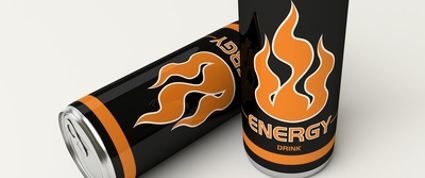
Wildly popular among teenagers, energy drinks of every design, label and flavor seem to be flying off the shelves into many American homes, schools and backpacks. But are they healthy for adolescents to drink? Growing research shows cause for concern in the continual consummation of these trending beverages.
Consuming too much caffeine and sugar is bad for anyone. The problem with the products sold as “energy drinks” is that these elements are blended with sweet, fruity drinks that charm younger kids like Kool-Aid and often lead to them consuming too much without realizing it.
Approximately one third of children from ages 10 to 19 reportedly consume energy drinks regularly. According to a study published in the Canadian Journal of Cardiology, excessive consummation of energy drinks, or the abuse of such drinks for teens, increases the risk of cardiac events or can cause irregular heart rhythms even in teenagers with healthy hearts. The Canadian study also found that this risk grows when an adolescent drinks them prior to or during activity in sports or exercise. See the full study along with suggested guidelines here: http://www.onlinecjc.ca/article/S0828-282X%2814%2901667-5/fulltext
Teenagers should use more caution with energy drinks than with coffee or soft drinks. They also often have other substances included which may adversely react with substances from other energy drinks or very dangerously with alcohol, which is reportedly a trending mixer for party crowds.
Ironically, although these drinks are marketed to increase mental clarity and physical energy, more and more research is suggesting they actually do the opposite for teenagers. The overconsummation of high-sugar and caffeine found in these beverages is reportedly leading to chemical dependence, poor sleep patterns, and lazy behavior. One study from researchers through the University of Minnesota and Duke University showed that middle school through high school level kids who consume one or more sports or energy drink per week may correlate with a variety of bad habits including an increase of screen time with television and video games. Another study, published in the Alcoholism: Clinical & Experimental Research journal, reportedly linked energy drink consumption to an increased risk of alcohol dependence.
Moderation is key to any nutritional choices. It is important for parents and young adults to realize that our bodies were not designed to consume large quantities of the processed chemicals and ingredients found in many of our food and beverage products today. If you chose not to forego them entirely, a good rule of thumb for teenagers would be once a week, and certainly not more than once per day. Because the fad of these drinks has been relatively short to date, it is not yet known what the long-term effects on a growing teenager’s body and brain could be, especially when consumed in excess. Remember what you put into your body matters, and most importantly, with a healthy diet of real whole foods and proper sleep at night, the seemingly sought-after benefits of these beverages will not be needed.
